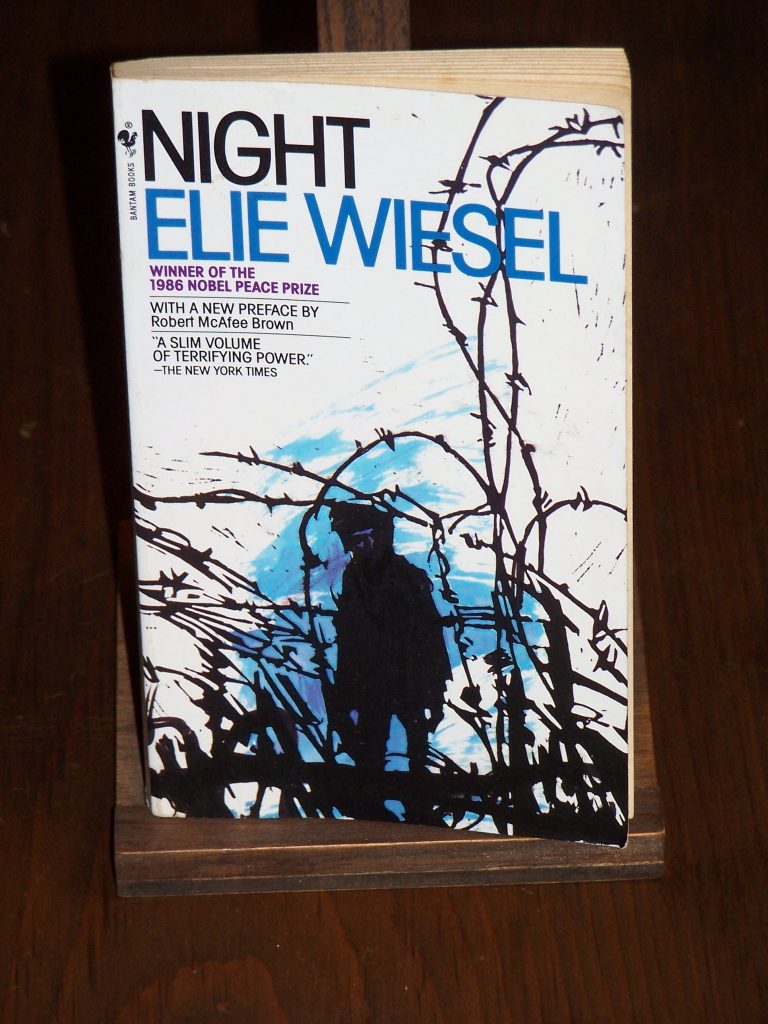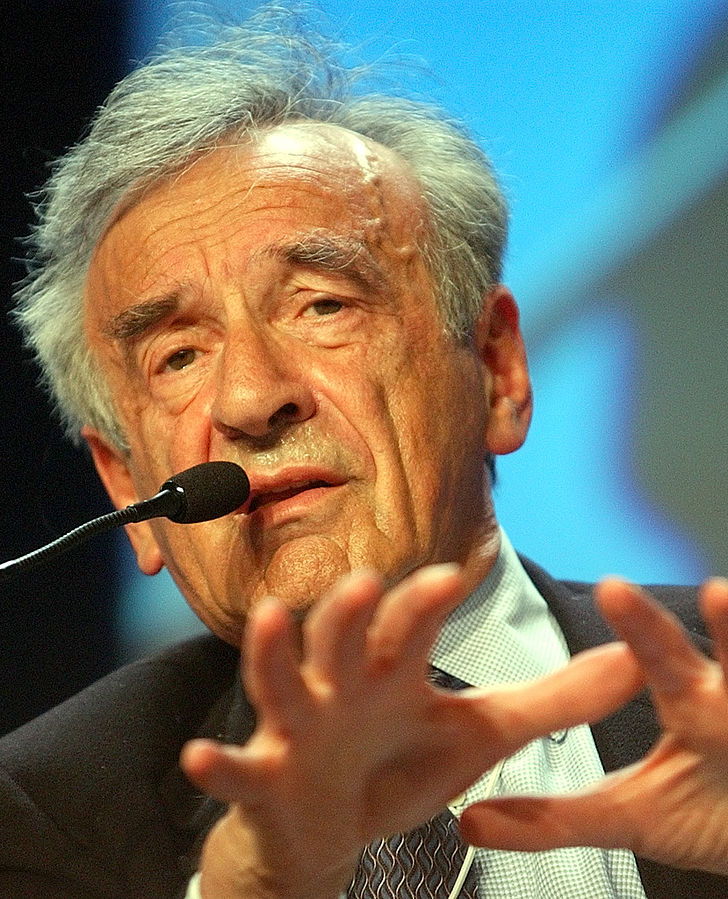|
For David Bankier, whose course both saddened and inspired me. |
Revised: 14-July-2016

I first read Elie Wiesel’s Night—his account of surviving the death camps of Auschwitz and Buchenwald—as a student in Dr. Marvin Wilson’s “Modern Jewish Culture” class at Gordon College in 1999. When I heard of Elie Wiesel’s death this past weekend, I decided to read his book again. I did this because, above all else, Elie Wiesel wanted us to remember: he wanted us to remember the lives of the European Jews who were senselessly murdered in the mid-1940s; he wanted us to remember that unimaginable cruelty is still possible in this scientifically and technologically advanced age; he wanted us to remember so that we who carry that memory will not permit it to ever happen again.
We are living at a time when the survivors of the Holocaust are becoming fewer, at a time when the eyewitnesses to the horrors of the Nazi extermination program have done about all they can do to entrust the memory and the responsibility of what happened to the next generations. We are living at a time when whether we have listened to the voices of the survivors will be put to the test.
When listening to the stories of survivors it is tempting to ask ourselves the wrong questions. It is tempting to ask, “What would I have done if I had been there?” Such a question easily leads to self-aggrandizing fantasies. We can convince ourselves that if we had been there we would have not have been silent bystanders. We would not have participated in the discrimination and humiliation of our Jewish neighbors. We would have protested against the demonization of our fellow human beings. We would have tried to stop the deportations. We would have hidden Jewish fugitives in our homes. We would have helped them to escape the camps and get out of Europe.

Elie Wiesel. Image courtesy of Wikimedia Commons.
But the question, “What would I have done if I had been there?” is not the one that Elie Wiesel and other survivors summon us to consider. They have not asked us to indulge in fantasies about how things might have been different. They insist that we ask ourselves how we intend to apply the lessons of their suffering to the situations we face today. They demand that we ask ourselves whether we are living in a time when other refugees are fleeing for their lives, and if so, whether we are currently welcoming them into our countries, our communities, and our homes, or whether we are attempting to block their escape by sealing our countries’ borders and condemning them to camps. They demand that we ask ourselves whether we hear leaders singling out certain ethnic or religious groups for special scrutiny. They demand that we ask whether politicians are telling us that certain minority groups—our neighbors, our co-workers, our colleagues, our friends—are an alien influence who threaten our country, our national identity, and our traditional way of life, and if so, whether we are giving credence to their rhetoric or whether we are exposing their lies.
The stories of Holocaust survivors teach us to speak up for those whose religion and traditions are slandered. Their stories warn us against rewarding leaders who prey upon our fears and base instincts by electing them to office. They demonstrate what can happen when discussions of mass deportations become an acceptable part of the political rhetoric. They urge us to reconsider whether words such as “amnesty” and “civility” ought to be dismissed with scorn.
How we answer these questions and apply these lessons will prove whether we have listened and whether we remember. Reading accounts like Elie Wiesel’s Night and listening to the stories of living survivors is important because, by looking into the pit of human depravity, we can discover empathy and compassion in our souls. But it is not enough to repudiate the evils of the past. We honor the memories of the six million Jews whose bodies were burned in the ovens only by applying the lessons we learned from the survivors to the demands of the present hour.




Comments 2
Last night KSPS in Washington State did a show of all the Charlie Rose interviews with Elie Wiesel. It was done very well and also thought you might be interested in watching it.
Jason Myers
Author
Dear Jason, I think this link will bring up the interviews you mentioned: https://charlierose.com/videos/28435. Thank you for sharing.